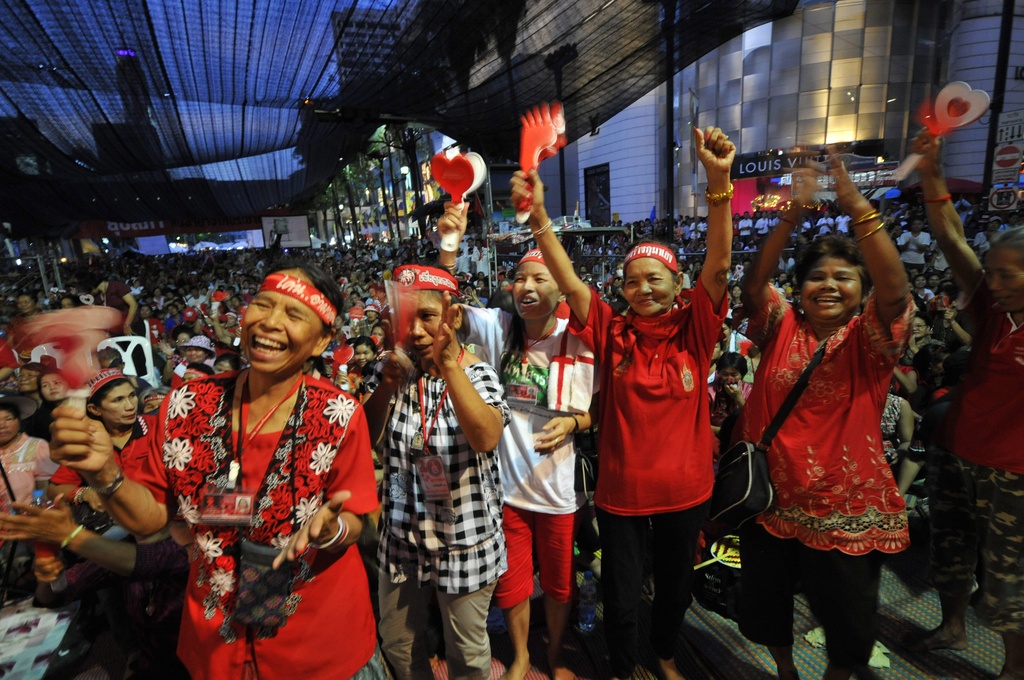
Crisis management body to step up activities

The foreign ministry’s crisis management agency says it plans to boost its services for Swiss citizens who find themselves in difficulties abroad.
The agency, which is part of the Swiss Abroad unit in the foreign ministry, had to step into action 12 times in the first six months of this year following earthquakes in Haiti and Chile as well as kidnappings of Swiss nationals in Asia and Africa.
In addition to the task force for emergencies the consular protection service is active on a daily basis to help in individual cases. They might not make the news headlines but often involve intense diplomatic efforts.
“We have more crisis situations than in the past,” said Markus Börlin who heads the Swiss Abroad unit.
He points out that expectations by people in difficulty as well as by the general public, the media and by politicians have risen.
Börlin, who has spent ten years in the service of the foreign ministry’s Political Affairs Division VI, adds that his unit has been faced with sometimes unrealistic demands for the state to interfere more promptly or on a bigger scale as people overestimate the influence of an embassy in dealing with local authorities in a foreign country.
But it is not only the frequency of crises that has changed but also the speed in which they have to be dealt with. Twitter and other information and alarm systems helped speed up the flow of information in the case of Iran, in Thailand and in Haiti, according to Börlin.
Hotline
He says speed is key in an emergency situation.
“The machine must be set in motion immediately,” said Börlin. The ministry can rely on about 120 volunteers among its ranks who man a hotline if necessary.
The service was first upgraded in the wake of the 9/11 attacks in the United States, when the ministry was inundated with thousands of telephone calls within just a few hours.
To avoid a repeat of a similar situation the authorities are now planning to set up a crisis centre which would include a 24 hour hotline operated from offices in the capital, Bern.
The current system with volunteers clearly reached its limits during the crisis in Thailand, as foreign ministry officials confirm.
The Swiss embassy in Bangkok had to close temporarily as clashes took place nearby. The foreign ministry in Bern had to step in and offer service also during nighttime.
“We sent 36,000 text messages and emails over five days to about 6,000 Swiss expatriates in Thailand,” said Christian Dussey who was in charge of the task force.
The unit is not only about to improve crisis management. Each embassy has been told to set up its own emergency scenarios to be reviewed on a regular basis.
Lack of experience
Both Börlin and Dussey dismiss allegations that the changes were necessary because some embassies mishandled crisis situations. They prefer the wording “lack of experience”.
In the past an ambassador could easily be posted abroad for five or six years before he was confronted with a crisis situation, they say.
Now there is an increasing risk awareness among the embassies. It has been noted that an increasing number of ambassadors requested additional courses beyond the mandatory training for crisis management, says Dussey.
But exceptional cases such as the 2004 tsunami in Asia require extraordinary means. The foreign ministry has a pool of some 220 specialist volunteers who can be deployed where necessary.
Börlin, who will shortly take over as ambassador to the Netherlands, says he never ceases to be astounded by what foolhardy risks some expats take despite warnings by the foreign ministry.
“Every week we have to deal with rather adventurous cases and in all sorts of places and situations,” added Dussey.
Federico Bragagnini, swissinfo.ch (Adapted from French by Urs Geiser)
An estimated 3,000 Swiss travelled to South Africa for the football World Cup.
The foreign ministry set up a mobile consular service in Durban, Port Elizabeth and Bloemfontein – the three cities where the Swiss team played their group matches.
The ministry said the consular services had to deal with only six cases, according to the Swiss News Agency. They had to issue passports or temporary documents for people travelling back to Switzerland. In one case a copy of a passport had to be validated allowing a football fan to get his ticket.
There are also several known cases of Swiss fans who were robbed.
The Swiss Abroad unit (Political Affairs Division VI) in the foreign ministry was set up in 1999 in the wake of an attack on Swiss tourists in Luxor, Egypt, two years earlier.
Its task is to provide efficient crisis management in the event of major incidents.
The unit comprises the service for the Swiss abroad, the consular protection section and the crisis management agency, which also provides information for travellers in 157 countries.
There are currently about 700,000 Swiss expats across the world; the consular section deals with an average of 2,000 cases a year.
Earthquake in Haiti (January 12)
Tourists blocked on Machu Picchu, Peru (January 26)
Earthquake in Chile (February 27)
Coup d’etat in Guinea Bissau (April 1)
Swiss national kidnapped in the Philippines (April 5, freed June 16)
Coup and clashes in Kyrgyzstan (April 7)
Kidnapping of a Swiss member of the ICRC in Democratic Republic of Congo (April 8, freed April 16)
Volcano erupts in Iceland (April 18-22)
Political crisis and clashes in Thailand (March to May 24)
Clashes in Jamaica (May 24-27)
Conflict in Kyrgyzstan, evacuation of Swiss nationals (June 10)
Kidnapping of Swiss citizen in Chad (June 6, freed June 15)

In compliance with the JTI standards
More: SWI swissinfo.ch certified by the Journalism Trust Initiative
































You can find an overview of ongoing debates with our journalists here . Please join us!
If you want to start a conversation about a topic raised in this article or want to report factual errors, email us at english@swissinfo.ch.